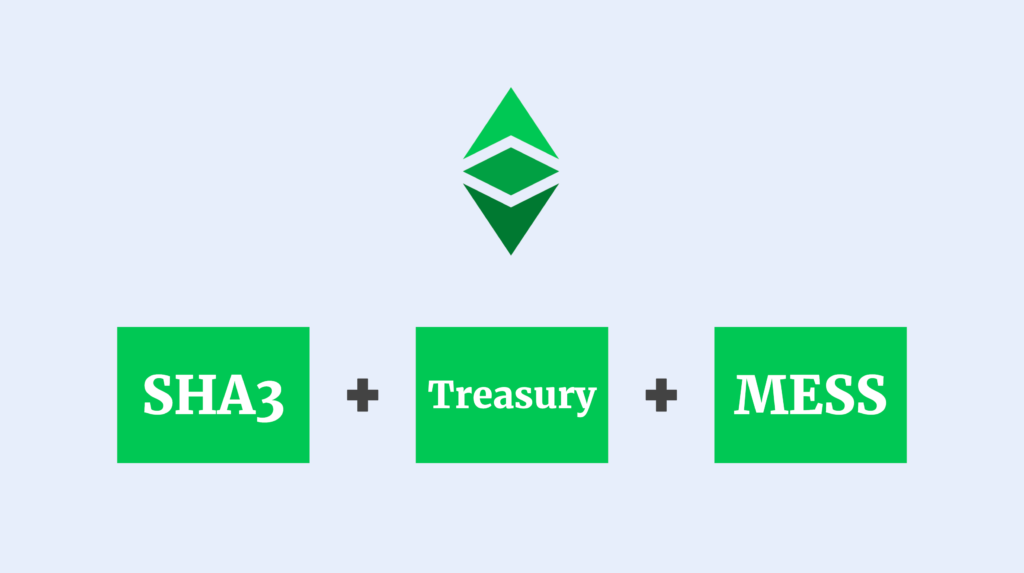
The following is the text of a pull request I introduced into the Ethereum Classic (ETC) Github repo as a conciliatory approach to upgrade ETC as soon as possible.
Abstract
Ethereum Classic (ETC) has suffered incredible instability in the last 18 months, not because it hasn’t worked as designed, but because, working as designed, it has been very easy to persistently reorganize the chain, significantly disrupting it. As a reaction to this instability several improvement proposals have been put forward, but, as this author has warned [1] [2], not all of them guarantee the continuity of ETC’s principles and core values [3] [4] [5].
However, neither this author, nor other ecosystem participants have been able to argue for an alternative set of internal changes that would solve the problems the network is going through in the short term. The risk is that such problems, although external in nature, if not addressed may lead the Ethereum Classic blockchain to permanently lose liquidity and market share in the medium to long term.
The three most important improvement proposals put forward recently, which seem to have significant rough consensus, are: ECIP-1049 (Keccak256), ECIP-1098 (Treasury), and ECIP-1100 (MESS). The only one that this author has favored as aligned with sound blockchain principles has been ECIP-1049.
However, this protocol compact 2020, if the ecosystem agrees, seeks to reach some sort of consensus in the short term to solve the network’s urgent problems as soon as possible. In virtue of this, the proposal of this ECIP is, according to ECIP-1000, to approve and implement the three ECIPs mentioned above, albeit with time limits for the Treasury and MESS, so that the system eventually falls back automatically to its original design, thus principles, and makes Keccak256 permanent.
Motivation
It is an unavoidable reality that Ethereum Classic has lost momentum in the form of market share and mining hash rate. It seems that if the continued reorganizations are not addressed, then the network may continue to lose liquidity, which could permanently hinder its future development. The three key point addressed by the recent most popular proposals are:
- ECIP-1049 – Change the ETC Proof of Work Algorithm to Keccak256: It positions ETC in a relatively unique mining algorithm niche, and provides a simple, clean, and generally viewed as a strong algorithm, similar or on par to Bitcoin’s SHA-256 mining algorithm.
- ECIP-1098 – Proto Treasury System: It provides funding for various developer teams and ancillary projects to continue Ethereum Classic’s development.
- ECIP-1100 – MESS (Modified Exponential Subjective Scoring): It provides an additional exponential difficulty to reorganization attackers and double spenders to disrupt the chain.
Specification
- ECIP-1098 – Proto Treasury System: Implement the Treasury for 5 years, and have it expire automatically. If it works, or is still needed, then it may be renewed by means of a new ECIP process, debate, and fork extending it.
- ECIP-1100 – MESS (Modified Exponential Subjective Scoring): Implement MESS for 5 years, and have it expire automatically. If it works, or is still needed, then it may be renewed by means of a new ECIP process, debate, and fork extending it.
- ECIP-1049 – Keccak256: Implement it as soon as possible, or in the same fork as the above ECIPs if possible. It stays permanently, or is changed in the future if algorithm changes are needed again.
Rationale
Although ECIP-1098 and ECIP-1100 do not align, according to this author, with sound proof of work based Nakamoto consensus blockchain principles, but as there is significant consensus in the ecosystem that something must be done as soon as possible, at least the limitations prosed to both ECIPs guarantee that they will expire, and a new debate, with a new hard fork are needed to reactivate them.
ECIP-1049 uncontroversially agrees with proof of work based Nakamoto consensus, so that proposal becomes permanent.
Implementation
To continue the current processes of ECIP-1049, ECIP-1098, and ECIP-1100 as per ECIP-1000, and move them to final for further implementation simulataneously when or if this ECIP-1101 is approved and moved to “active” status. If successor ECIPs or standard modifications and improvements are made to them, other than the limitations suggested in this proposals, those would be fine as per this protocol compact 2020.
Risks
The treasury in ECIP-1098 presents the risks that as the developer teams will count with revenues to fund their projects, they may be biased to renew the treasury indefinitely.
The exponential scoring system in ECIP-1100 may provoke unintentional chain splits in case of internet infrastructure level partition attacks [6]. It may also cause new entrant or reentrant nodes to have to check with trusted third parties which is the canonical before joining the network.
References
[1] Why Ethereum Classic Should Not Create a Treasury
[2] Why Ethereum Classic Should not Adopt Modified Exponential Subjective Scoring (MESS)
[3] Ethereum Classic Declaration of Independence
[4] Code Is Law and the Quest for Justice
[5] 10 Principles for Blockchain Governance
[6] Hijacking Bitcoin – Blockchain meets Internet Routing
Copyright/Licensing
This ECIP-1101 is licensed under Apache-2.
Code Is Law